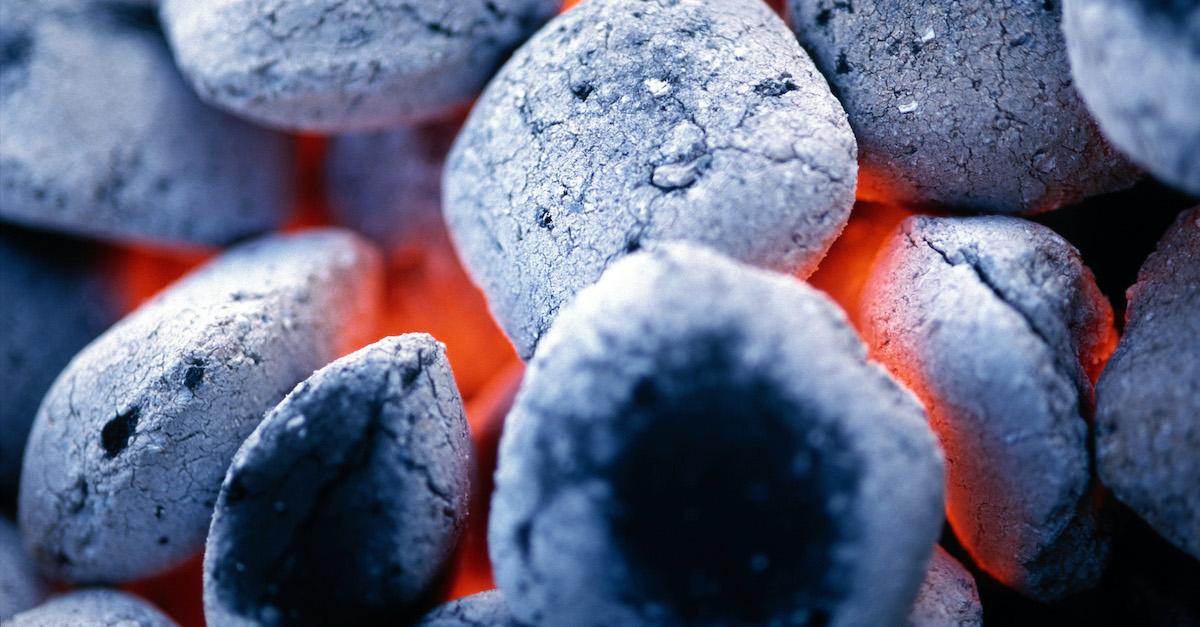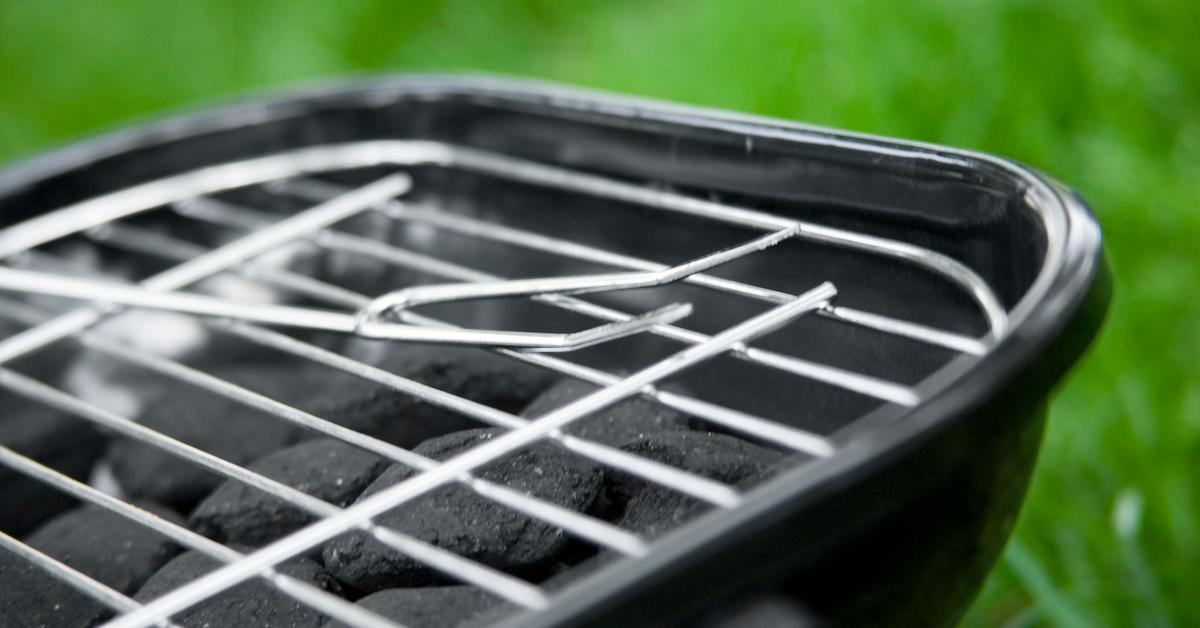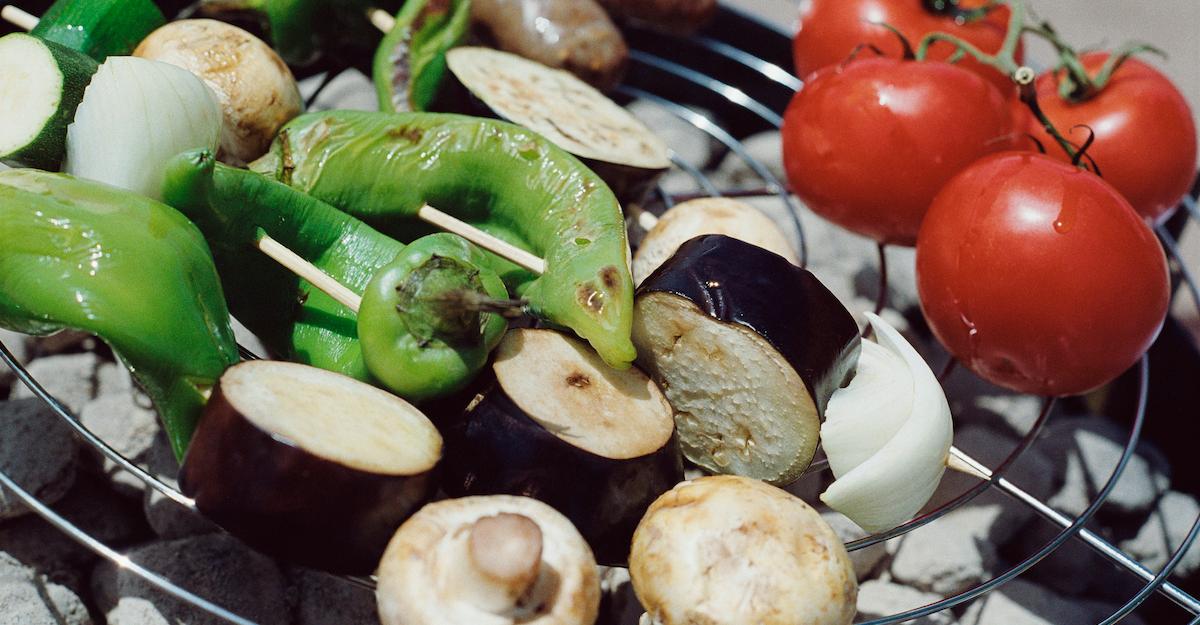Is Charcoal Eco-Friendly? Make Your Summer Grill Sessions Sustainable
"The carbon footprint of a gas grill is about one-third the footprint of a charcoal grill."
Updated May 6 2024, 2:57 p.m. ET

Even those of us who want to make conscious choices on behalf of the planet want to grill a little during the summertime. Whether we're cooking up a vegan burger or a mean veggie kebob every now and again, we can all agree, some things just taste better on the barbie.
So, it’s no wonder so many of us question whether grilling with charcoal is safe for the environment. No matter what kind of grill you have on hand, there is always a way to make your barbecue and your grilling practices gentler on the planet. Here's what you should know about your grilling habits — and how to change them for the better.

Is charcoal eco-friendly?
Charcoal may add more natural flavor to food, but it's far less sustainable than using a gas grill. According to Michigan Public, charcoal grills generate nearly three times the amount of greenhouse gases as gas grills in practice.
Production-wise, some charcoal can be made from renewable resources, but others are made from lighter fluid, which is derived from fossil fuels. Plus, because you can't "turn off" a charcoal grill, it continues burning long after use, releasing more harmful substances into the atmosphere.
According to a 2009 NPR article interviewing researcher Eric Johnson, gas grills have a lower environmental impact than charcoal grills. Johnson told NPR why, saying: “The carbon footprint of a gas grill is about one-third the footprint of a charcoal grill… Most of that footprint is from the fuels being burnt.”

Here are some ways to try "green grilling."
Despite charcoal's environmental impact, there are actionable ways to make your charcoal grill a more sustainable experience. According to USA Today, you could swap out your old grill for a ceramic kamado-style grill. These types of grills are circular and can moonlight as smokers, ovens, and grills. Because of their egg-like shape, kamado-style grills retain heat better than a conventional grill, which means less is going to waste.
Another way to make your charcoal grill more sustainable is to opt for better charcoal. Per the Huffington Post, conventional charcoal bricks are comprised of wood byproduct, sawdust, and lighter fluid (with nasty additives in there, too!). These bricks often release volatile compounds (VOCs) into the atmosphere as they burn, making them even worse for the planet.
“Better” charcoal is sustainably sourced, organic, and all-natural, such as organic lump bamboo charcoal or coconut shell charcoal.

Additionally, according to The Spruce Eats, there are a few measures you can take when grilling to make the process greener, such as cleaning out your grill regularly to reduce unnecessary smoke and avoiding using disposable utensils in your next cookout.
You should also make informed decisions about the type of grill you're investing in, to avoid buying a cheap grill every 3 or 4 years — which would only further harm the environment.
There are a few alternatives to grilling that wouldn't require charcoal at all.
Thankfully, there are a few alternatives to grilling that not only remove charcoal from the equation, but they're a bit more eco-friendly too. For example, Outside Magazine suggests using a solar stove (which, surprisingly, can also be used in the shade!) or a pit oven on your next camping trip.

Similarly, Food & Wine suggests investing in a cast iron skillet or grill pan to make meals that require a nice sear, and not to overlook your Crock-Pot or other slow cooking device.
This article, originally published on Dec. 8, 2020, has been updated.